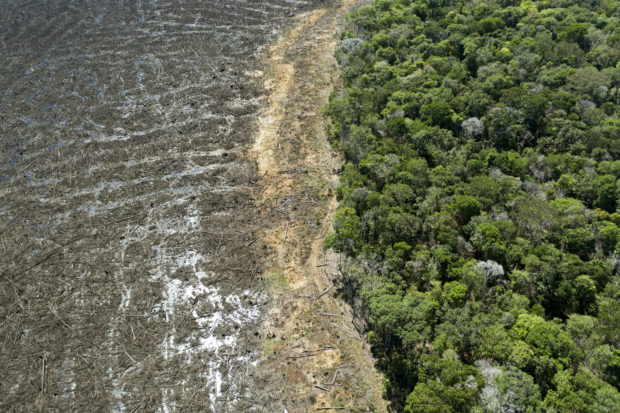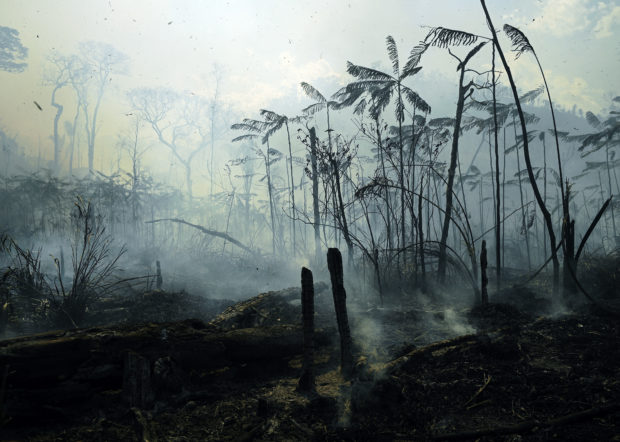Deforestation of Brazilian Amazon hits record in April

(FILES) In this file photo taken on August 07, 2020, aerial picture of a deforested area close to Sinop, Mato Grosso State, Brazil. – A total of 580.55 square kilometers were deforested in the Brazilian Amazon in April 2021, a record level for the month, according to official data released on May 7, 2021, defying President Jair Bolsonaro’s promises to reduce deforestation. (Photo by Florian PLAUCHEUR / AFP)
Río de Janeiro, Brazil — Deforestation of the Brazilian Amazon hit a record last month, the government reported Friday with figures that belie President Jair Bolsonaro’s pledge to crack down on such destruction.
The area of the rainforest that was destroyed — 580 square kilometers (225 square miles) — marked a new high for the month of April and a 42.5 percent on-year rise, according to satellite monitoring by the Brazilian space agency INPE. Its data goes back to 2015.
The level for March was also higher than 12 months earlier, and followed two months of decline in the rainy season when logging activity decreases.
From January through April 29, however, the cutting of trees to provide lumber and clear land for agriculture was down 3.9 percent compared to the same period in 2020, INPE said.
The dry season, which peaks in July and August, is when most deforestation happens.
Article continues after this advertisementRecords have been set in the past three dry seasons, INPE said.
Article continues after this advertisementThe Amazon, the world’s biggest rainforest, is considered vital to curbing climate change because of the carbon dioxide it absorbs from the atmosphere.

View of a burnt area of Amazon rainforest reserve, south of Novo Progresso in Para state, on August 16, 2020. (Photo by CARL DE SOUZA / AFP)
About 60 percent of the rainforest is in Brazil.
“Right now it is not possible to say what will happen but in 2021 there could be a fourth straight deforestation record,” said the Climate Observatory, a group of 63 NGOs and social organizations.
Bolsonaro, a far-right climate change skeptic, came to power in 2019 encouraging commercial exploitation of the rainforest and calling conservation groups “cancer.”
However, last month he pledged to “eliminate illegal deforestation in Brazil by 2030,” 10 years earlier than initially planned.
Environmental NGOs have expressed doubt that Brazil under Bolsonaro will live up to this pledge.
“In 2021 there is no federal effort to control deforestation,” the Climate Observatory said.
The government agency that carries out inspections in the Amazon “is doing nothing” and the process of punishing violators has been halted, it added.
A study published last week by the journal Nature Climate Change said the Brazilian Amazon released nearly 20 percent more carbon dioxide into the atmosphere over the last decade than it absorbed.
This report shows humanity can no longer depend on the world’s largest tropical forest to help absorb man-made carbon pollution.